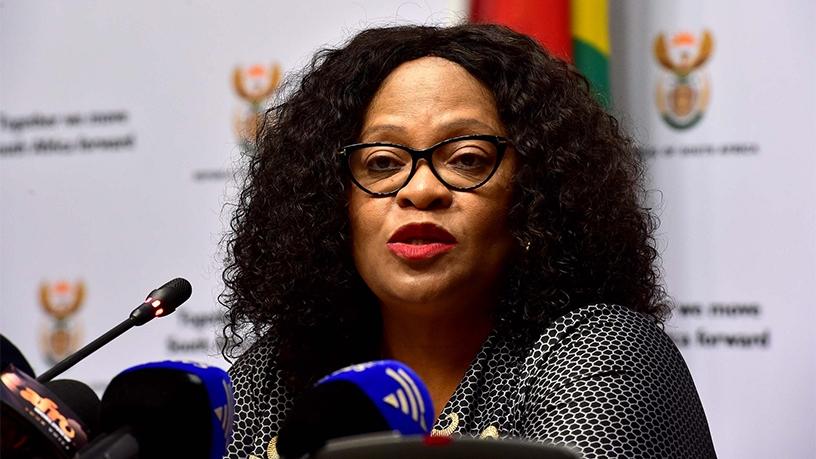
The announcement on Cabinet's decision to adopt a revised model to roll out the much-delayed digital migration project has left more questions than answers.
Yesterday, communications minister Nomvula Mokonyane said in a statement that government will no longer be involved in the procurement of set-top boxes (STBs), warehousing, transportation and installation of devices.
This, noted Mokonyane, provides South Africa with headway towards the completion of the project in a manner that is inclusive, affordable and efficient, and that reduces risk to government. "The model adopts a market- or retail-driven approach through collaboration and partnerships with the private sector and industry."
When asked for clarity, the communications ministry, which is charged with facilitating SA's switch from analogue to digital terrestrial television (DTT), was also very short on detail.
Department spokesperson Mish Molakeng says the new model merely means government will not procure devices any longer. "It [government] will leave this function to retailers. Retailers will now place orders with manufacturers as it is their main role in the economy. Government will then rightfully do its role of providing policy certainty and oversight. A briefing will be held by the department next week to clarify the new delivery model in more detail."
However, there are still questions as to whether manufacturers will be required to produce STBs, what digital migration products they will be required to produce, what guarantee retailers have in this case and how government will cushion low-income households, to name a few concerns.
According to reports, the STBs that have already been manufactured and are gathering dust in warehouses will still be distributed to households in the Free State' North-West and Northern Cape. There is also speculation that government is considering coupon vouchers to shoulder the costs for low-income households.
Tech race
Leon Rolls, president of Progressive Blacks in Information and Communication Technology (PBICT), says government has taken so long on the digital migration project that the technology has caught up with it.
The PBICT describes its mission as ensuring black people have full access to the ICT sector.
Rolls says: "I am more inclined to believe this model is just another stunt of filling some pockets and two years down the line I see a major headline: R100 billion blown in thin air. Government must appoint SMMEs to distribute these hundreds of thousands of STBs, which are rotting away, and put an end to this digital disaster. With the fourth industrial revolution and 5G upon us, let's cut our losses and repurpose."
Responding to how this revised service delivery model will impact STB manufacturers, Rolls says SA is largely a consumer of technology rather than a producer.
"The Internet of things will have a high demand on new devices to be innovated and manufactured so we think it's time for government to repurpose and refocus. Yes, some [manufacturers] will lose out but there is still opportunity to develop more purposeful devices that can actually benefit people and not the pockets of the white monopoly capital, corrupt government officials and politicians."
'Abandon DTT'
ICT policy and regulatory expert Charley Lewis is hardly surprised by the latest digital migration developments.
The corruption and procurement irregularities surrounding the STBs are only part of the problem, he states.
"The wisdom of the migration to DTT in the first place is far more fundamental and far more deserving of government scrutiny and policy revision. While digital terrestrial television made sense 10 years ago when the process was first started, it no longer does so.
"While the move to digital television is imperative - on the one hand, to free up digital dividend spectrum for broadband, and, on the other, to provide the public with access to a far greater choice of far higher quality viewing - the justification for this to be done terrestrially no longer applies.
"South Africa should abandon DTT in its entirety, or move wholly to digital satellite, or it should adopt a hybrid approach, rolling out DTT in the lower-cost urban areas and switching to satellite in the harder-to-reach remote and rural areas."
Lewis highlights that Mokonyane needs to share her research and spell out precisely how she plans to fund the access gap and how the private sector will roll out digital migration devices to those low-income households.
The National Association for Manufacturers in Electronic Components (Namec) has indicated its displeasure in regards to the latest developments.
"Namec is opposed to the approach as announced by the minister of communications and we intend to raise our concerns, not only on behalf of our members but also our people, especially the poor and working class, with the ministry of communications and Parliament.
"We believe the decision is not in the best interests of our country and should be reviewed through proper consultation with all stakeholders in order to allow our country to exploit the opportunities being brought about by the developments in ICT, including digital migration."
Meanwhile, the Universal Services and Access Agency of SA (USAASA) says it welcomes the Cabinet decision.
"As part of the large, multi-role BDM project led by the Department of Communications, in the value chain, USAASA's role was the development of the criteria or means test to determine qualifying households, managing the disbursement of subsidy funds, appointing, managing and monitoring the DTT/DTH set-top box manufacturers, antennas and satellite dishes, and installation companies. The new approach effectively amends the 2012 Cabinet-approved scheme of ownership framework, therefore USAASA will no longer be procuring new set-top boxes.
"USAASA, in partnership with the South African Post Office, will continue to install and complete the stock. The remaining STBs that are still being kept in the post office will be distributed and installed using the old model until they are depleted. Once this stock has been depleted, there will be no new order or delivery from USAASA and existing manufacturers."
Share